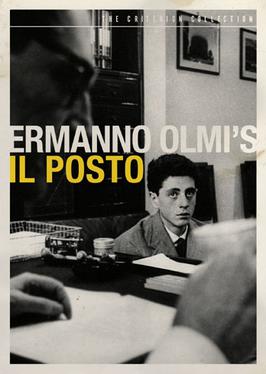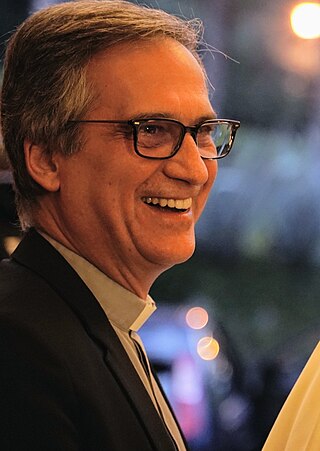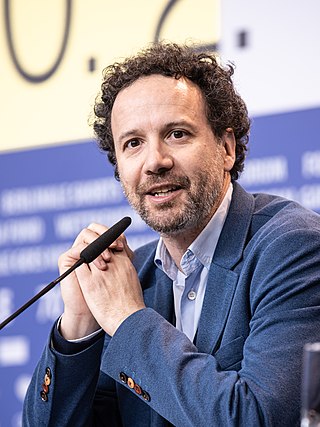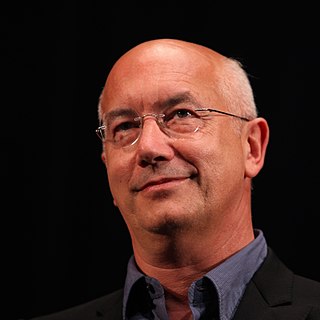Related Research Articles

The cinema of Italy comprises the films made within Italy or by Italian directors. Italy is one of the birthplaces of art cinema and the stylistic aspect of film has been one of the most important factors in the history of Italian film. As of 2018, Italian films have won 14 Academy Awards for Best Foreign Language Film as well as 12 Palmes d'Or, one Academy Award for Best Picture and many Golden Lions and Golden Bears.

Monica Anna Maria Bellucci is an Italian actress and model. She began her career as a fashion model before transitioning to Italian and later American and French films. She has played starring roles, supporting roles and guest appearances within an eclectic filmography spanning a range of genres and languages. In 2018, Forbes Italy named her one of the 100 most successful Italian women.

Mario Alberto Ettore Monicelli was an Italian film director and screenwriter, one of the masters of the commedia all'italiana. He was nominated six times for an Oscar, and received the Golden Lion for his career.

Eraclio Petri, commonly known as Elio Petri, was an Italian film and theatre director, screenwriter and film critic. The Museum of Modern Art described him as "one of the preeminent political and social satirists of 1960s and early 1970s Italian cinema". His film Investigation of a Citizen Above Suspicion won the 1971 Academy Award for Best Foreign-Language Film, and his subsequent film The Working Class Goes to Heaven received the Palme d'Or at the 1972 Cannes Film Festival.

Il Posto is a 1961 Italian drama film directed by Ermanno Olmi. Often cited as Olmi's first major work, it is an example of Italian neorealism. Olmi won the David di Donatello for Best Director for his work on the film. In 2008, the film was included on the Italian Ministry of Cultural Heritage’s 100 Italian films to be saved, a list of 100 films that "have changed the collective memory of the country between 1942 and 1978."

Matteo Garrone is an Italian filmmaker.
Trento Longaretti was an Italian painter. He studied at the Brera Academy in the 1930s, where he was taught by renowned artists, including painters Aldo Carpi and Pompeo Borra, and sculptors Francesco Messina and Marino Marini. He stated that painting is an "elixir for long life", and continued to paint and exhibit as a centenarian.

Dario Edoardo Viganò is an Italian Catholic priest, writer and university teacher. He was named Director of Vatican Television Center in 2013. He served as the first Prefect of the newly established Secretariat for Communications from 27 June 2015 to 21 March 2018, resigning "a week after his mishandling of a letter from retired Pope Benedict XVI provoked a global outcry".

Carlo Chatrian is an Italian journalist and the artistic director of the Berlin International Film Festival (Berlinale).
Stefano Casertano is a film director, producer, screenwriter and author residing in Berlin, Germany and Rome, Italy. Casertano heads the film company "Daring House".
The Nastro d'Argento is a film award assigned each year, since 1948, by Sindacato Nazionale dei Giornalisti Cinematografici Italiani, the association of Italian film critics.

The Lucca Film Festival, or LFF, is an annual event that has been held in Lucca since 2005. The festival offers screenings, exhibitions, conferences, and performances, ranging from mainstream to art-house cinema.

José Luis Palomino is an Argentine professional footballer who plays as a centre-back for Serie A club Atalanta. Palomino is capable of playing in aerial play and tackling.

Davide Ferrario is an Italian film director, screenwriter and author.
Matteo Rovere is an Italian director, screenwriter and producer. He's the youngest Italian film-maker to have won the Nastro d'argento for best producer, with I Can Quit Whenever I Want.

People and Religions – Terni Film Festival is an international film festival, which takes place annually in November at the CityPlex Politeama Lucioli in Terni and at many other venues around the town. It deals with interfaith dialogue, spirituality in cinema, immigrant integration, visual education and activities for prisoners. For two consecutive years, the festival was awarded the Medal of the President of the Italian Republic. It has been organized by ISTESS, Institute of Theological and Historical-Social Studies, directed by Stefania Parisi. Honorary president of the festival is Krzysztof Zanussi, Polish film director; the artistic director is Arnaldo Casali. Promoted by the diocese of Terni Narni Amelia and by the Episcopal Conference of Umbria, the festival enjoys the patronage of the Municipality of Terni and the Pontifical Council for Culture, with the support of the Umbria Region, the Ministry of Cultural Heritage and Activities, as well as the Fondazione Cassa di Risparmio di Terni e Narni.

Giorgio Gori is an Italian entrepreneur, journalist and politician. He is a member of the Democratic Party and has been the mayor of Bergamo since June 2014.
Gian Piero Brunetta is an Italian film critic, film historian, and academic.

Io capitano is a 2023 drama film directed by Matteo Garrone, from a screenplay written by Garrone with Massimo Gaudioso, Massimo Ceccherini and Andrea Tagliaferri.
Bergamo Film Meeting is a film festival held every March in Bergamo, Lombardy. The festival was founded by Sandro Zambetti and Angelo Signorelli in 1983. As of 2023, it has an annual attendance of 70000 and offers more than 150 screenings in its program.
References
- 1 2 3 4 "Sandro Zambetti e il cinema passione ricambiata Lo ricorda il figlio Matteo". Bergamo News. 2014-06-12. Retrieved 2024-01-30.
- 1 2 3 "Lutto per la cultura bergamasca: È morto Sandro Zambetti". L’Eco di Bergamo. 2014-06-07. Retrieved 2024-01-30.
- ↑ Bozza, Gianluigi. "Un caro saluto a Sandro Zambetti". Cineforum. Retrieved 2024-01-30.
- ↑ Ferriario, Davide. "Addio al padre del Cineforum". Corriere di Bergamo. Retrieved 2024-01-30.
- ↑ "Alasca". Fondazione Alasca. Retrieved 2024-01-30.